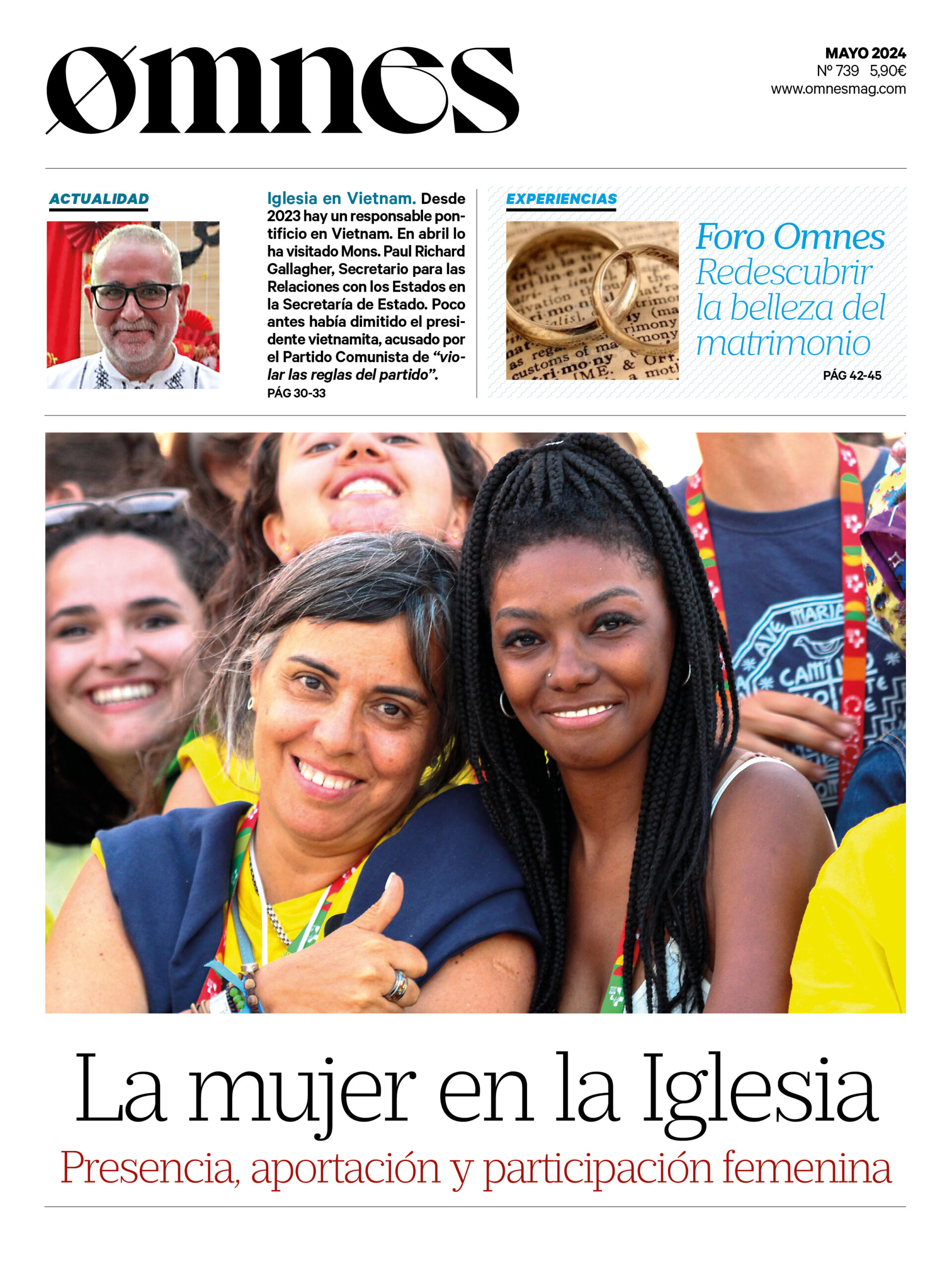To recover the Catholic presence and voice in today's world with a true missionary thrust. To welcome the concerns of so many people who pursue the desire for eternity in ideological postulates. To transform confrontations into calls for dialogue and reconciliation. These are some of the key objectives that the Spanish church, through the document Faithful to the missionary sending, is set for the coming years. The document was presented at the Casa de la Iglesia by the president of the Spanish Episcopal Conference, Bishop Juan José Omella, and the secretary general and spokesman of the institution, Bishop Luis Argüello.
Referring to this document that gathers the lines of action for the Spanish Church in the coming years, the President of the Spanish Bishops, by way of introduction, gave an analogous example of a "family house, solid, which is valid but which, with the passage of time, needs new reforms" and encouraged a necessary renewal of missionary zeal in today's society in which Catholics can encounter so much resistance before which they must proclaim their firmness in the faith. We need courageous witnesses in our world", stressed the Archbishop of Barcelona.
An idea that has subsequently stressed to the media in attendance: "Sometimes we have a bit of cowardice and we have to say with normality what we think, or live as values" . In this sense Omella has recovered the phrase of Pope Francis in the interview granted to Cadena Cope on September 1 "to reconcile with one's own history. Love what you are: these are my values and I want to live them. Without imposing them
Our world lives as if God did not exist
The most intense explanation and reflection on the document was given by the Secretary General of the Spanish Episcopal Conference, who began his speech by affirming that the work on this document was "an exercise of internal collegiality that helps, in this great ecclesial moment, to recognize that we are making the history of the Church together" as Pope Francis asks in view of the next Synod of Bishops that has been presented these days.
"The Lord goes ahead of us" stressed Bishop Arguëllo who emphasized how the teachings of the Second Vatican Council, the Magisterium of the last pontiffs, from Paul VI to Francis, and the work of the Spanish Episcopal Conference itself, especially in the Congress of the Laity held in 2019, have been the basis of preparation for these lines of action of the Spanish Church.
In this line, he stressed that the Church looks "with concern and benevolence" at the reality of a society "that lives as if God did not exist," in which ideologies have triumphed over reality and which shows an integral detachment of the person who becomes an individual separated from any family, social or even personal bond with his own body.
Recovering the family
Argüello also wanted to highlight how "The new neoliberal capitalism, the anthropological turn, the destruction of family ties, the enthronement of feelings, have, as a whole, a catalyzing element: the understanding of the family as an expression of human anthropology" and with it, also the change in the concept of society as a family of families.
The Secretary General of the EEC wanted to emphasize that the Church's proposal is an integral proposal and that it is a mistake to separate into compartments of "moral issues" or "political issues" matters that concern human dignity such as the fundamental rights of life, freedom translated into issues such as abortion, euthanasia, freedom of education, etc... etc.
Dialogue and welcome
Bishop Argüello emphasized that "all the new rights that we see society demanding are rooted in the deepest fabric of human existence, which is why they are attractive to young people." "Our challenge is to welcome those who have these concerns and to initiate a dialogue with society." To do this, it is necessary to set aside the idea that currently persists in many sectors that "the proposal of dialogue carries with it phobic behavior when the opposite is true."
All this, with the aim of overcoming the constructivist proposal that is observed in much of the world and that presupposes "a total destruction of everything that has gone before".
Argüello pointed out - following the text of the document - the obvious difficulty of this task, with internal and external difficulties, although he stressed that the task of the Church goes beyond the temporal situation.
In relation to the reform of the Spanish Episcopal Conference, Bishop Argüello emphasized the importance of the fact that each Episcopal Commission has indicated in this document which tasks and action plans "it assumes as its own and which it will share with other commissions".
Surprise and sorrow for Solsona
The case of the recent resignation of the Bishop of Solsona has been one of the questions raised by the media. A matter of which Omella has pointed out that he knew nothing about. "I was surprised by the fact, like everyone else. I share the pain of his family, of the church of Solsona and the whole church of Catalonia". The president of the EEC and Archbishop of Barcelona has encouraged "not to make a morbid novel and crush people" but to "value so many bishops, priests, fathers of families who live faithfully their vocation".
Return to dialogue in education
Asked about a possible meeting with the Minister of Education, the president of the EEC, said that there are meetings planned and is hopeful about this possibility of dialogue that opens in relation to the LOMLOE, processed in an express way and without the consensus or input from educational employers, teachers and parents' associations. In this sense, Omella has reiterated his confidence in the dialogue because "we are all working for the common good and we want to contribute from our place".












